
You're here because you're curious, driven, and always striving for that extra edge.
And today, we're diving deep into a topic that's been buzzing around: DMAA vs DMHA.
These two powerful stimulants have been making waves, promising to boost your energy, focus, and performance.
But what's the real deal?
Are they safe?
Are they legal?
And most importantly, which one is better for you?
We know these questions might be swirling in your mind, creating a whirlpool of confusion and curiosity.
And that's why we're here.
In this article, we're going to dive deep, break down the science, and give you the clear, concise, and comprehensive information you need.
So, buckle up, because we're about to embark on an exciting journey through the world of DMAA and DMHA.
By the end, you'll be equipped with the knowledge to make informed decisions about these potent stimulants.
Read: What is DMAA Pre-Workout?
So, are you ready? Let's get into it...
DMAA and DMHA are stimulants in pre-workout supplements. DMAA gives an intense energy boost but has serious side effects and is often banned. DMHA, a safer alternative, provides steady energy.
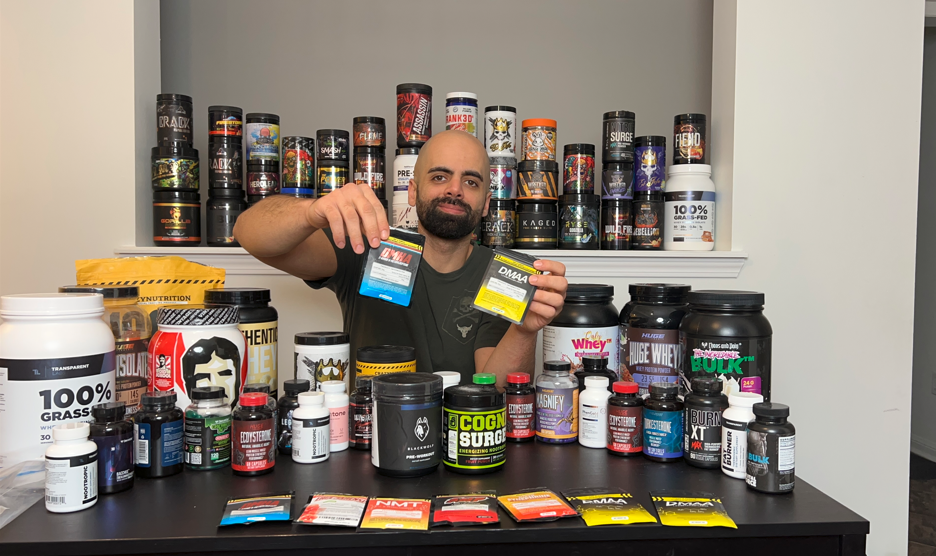
DMAA, short for 1,3-dimethylamylamine, is a powerful stimulant that was originally used as a nasal decongestant.
Yes, you read that right!
But over time, it found its way into the supplements due to its potent energy-boosting effects.
So, how does DMAA work?
Well, it increases the levels of certain neurotransmitters like dopamine and norepinephrine.
These neurotransmitters are like your body's "feel good" chemicals.
They not only boost your mood but also increase alertness, concentration, and physical performance.
Sounds great, right?
But hold your horses!
We'll get to the benefits and risks in a bit.
On the other side of the ring, we have DMHA, also known as 2-aminoisoheptane.
Like DMAA, DMHA is a powerful stimulant that boosts energy levels.
It's often touted as the "next big thing" in the world of fitness supplements.
But how does it work?
Well, similar to DMAA, DMHA increases the levels of dopamine and norepinephrine.
This leads to increased energy, improved focus, and enhanced physical performance.
But that's not all.
DMHA also has a longer half-life than DMAA, which means its effects last longer.
Let's move on to the real deal: comparing DMAA and DMHA.
Regarding their chemical structure, DMAA and DMHA are quite similar.
They both belong to a class of compounds known as aliphatic amines.
However, there are some key differences.
For instance, DMHA has a longer carbon chain, which might explain its longer half-life.
With their mechanism of action, both DMAA and DMHA increase the levels of dopamine and norepinephrine.
But DMHA is believed to be less potent than DMAA, which might make it a safer option.
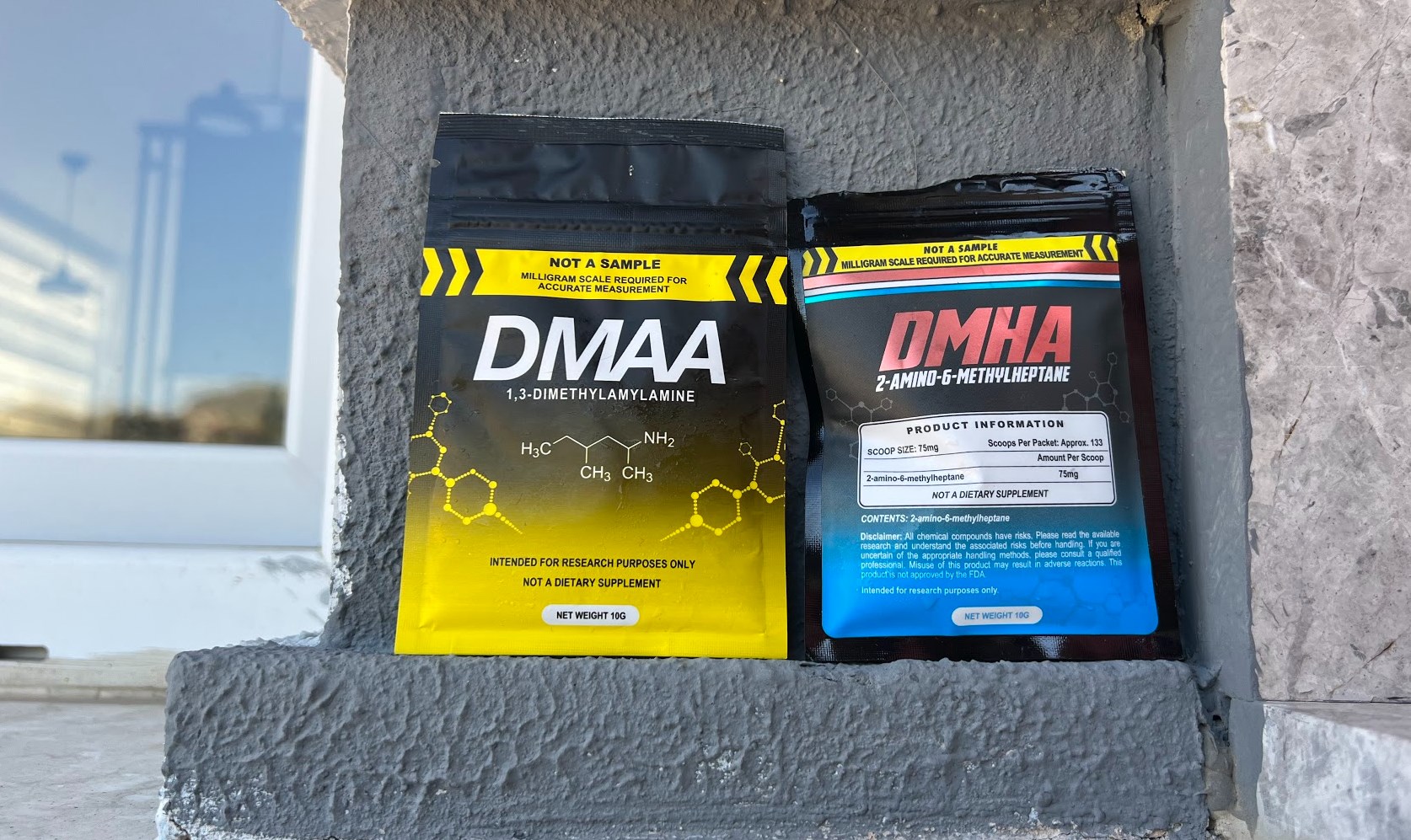
So, you're wondering, what's the difference between DMAA and DMHA?
Well, let's break it down.
DMAA and DMHA are both powerful stimulants that can boost energy, focus, and physical performance.
But here's the kicker:
While they have similar effects, there are some key differences between them.
First off, their chemical structure.
DMAA, or 1,3-dimethylamylamine, has a shorter carbon chain compared to DMHA, or 2-aminoisoheptane.
This might seem like a minor detail, but it has significant implications.
You see, DMHA's longer carbon chain means it has a longer half-life.
In other words, the effects of DMHA last longer compared to DMAA.
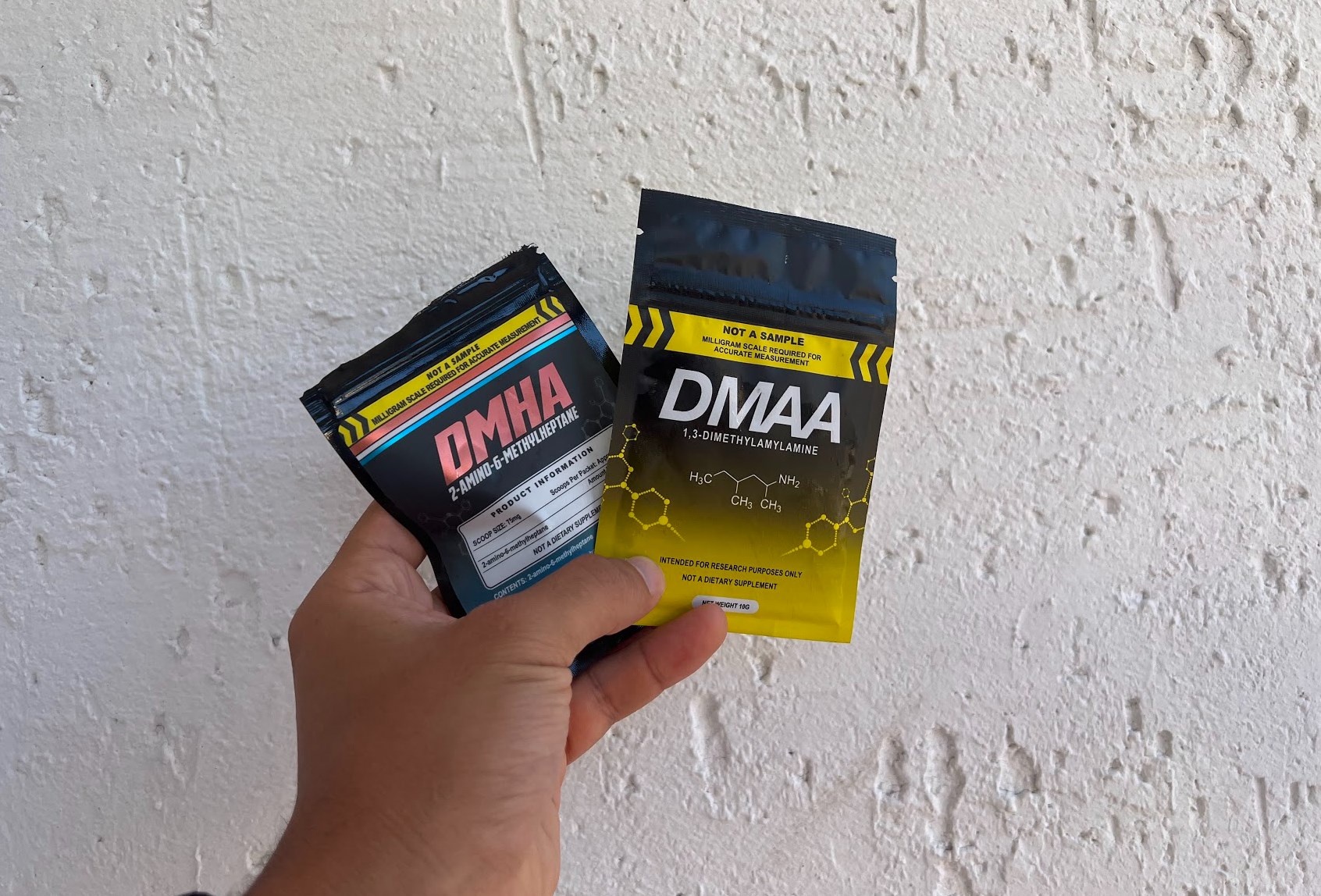
There's a fair amount of research on DMAA and DMHA, but the results are mixed.
Some studies suggest that these stimulants can enhance physical performance and aid in weight loss.
However, other studies raise concerns about their safety and side effects.
It's also worth noting that most of the research on DMAA and DMHA is conducted on animals or in vitro.
Therefore, more human studies are needed to fully understand their effects.
Like any other stimulants, DMAA and DMHA come with their share of side effects.
These can include increased heart rate, high blood pressure, and even severe conditions like heart attacks.
Therefore, it's crucial to use these substances responsibly and under the guidance of a healthcare professional.
You might like: The safest, FDA approved Pre-Workouts
When used responsibly, DMAA and DMHA can offer several benefits.
These include increased energy, improved focus, enhanced physical performance, and potential weight loss.
However, these benefits come with risks.
Overuse or misuse of DMAA and DMHA can lead to serious health issues, including heart problems.
Therefore, it's crucial to weigh the benefits against therisks before deciding to use these substances.

Now, let's move on to how DMAA and DMHA work.
Both DMAA and DMHA work by increasing the levels of certain neurotransmitters in your brain, specifically dopamine, and norepinephrine.
Think of these neurotransmitters as your body's "feel good" chemicals.
They boost your mood, increase your alertness, and enhance your physical performance.
But here's where things get interesting:
While both DMAA and DMHA increase these neurotransmitters, DMHA is believed to be less potent than DMAA.
This means that while DMHA might have a longer-lasting effect, DMAA might give you a stronger initial boost.
So, in a nutshell:
DMAA and DMHA are similar in many ways, but they also have their unique characteristics.
DMAA might give you a stronger boost, while DMHA might last longer.
And DMAA has been shown to increase blood pressure.
But remember, both of these substances should be used responsibly due to their potent effects and potential side effects.
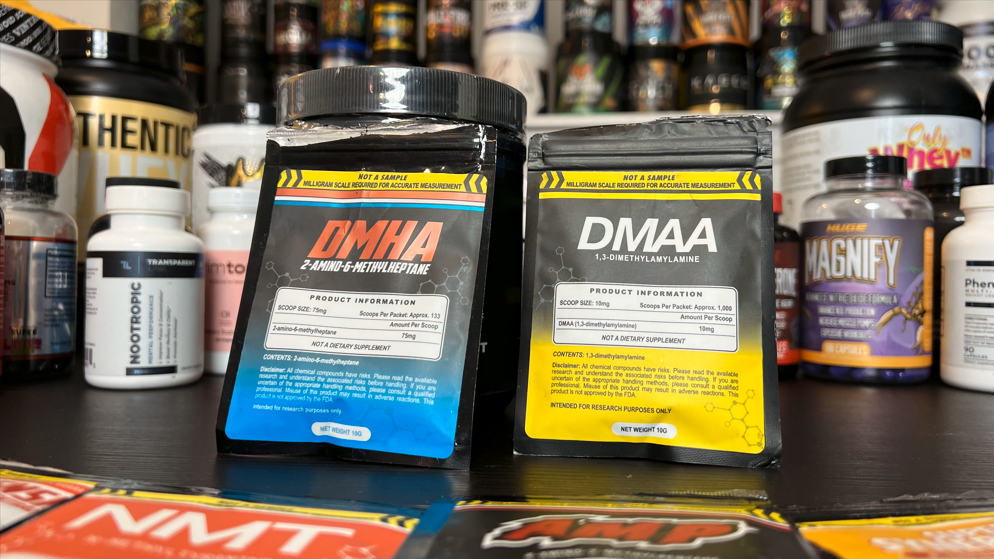
Most of the legal drama for these stimulants occurs in the United States.
The FDA has been taking companies down to keep DMHA and DMAA out of supplements.
Hi-Pharmaceuticals is one company that has been fighting the FDA from 2013, all the way through 2020 and have taken it all the way up to the Supreme Court.
They had their supplements seized by the FDA and it was one of the most known cases.
Hi-Tech Pharma has sold close to 4 million units of DMAA containing supplements from October 2010 through 2015, and only 35 adverse event reports were associated with their products.
That's more than 200,000,000 servings taken in just 5 years.
Only six of those adverse event reports mention DMAA, and the other ones are unknown.
Compare that to vitamin C, which had close to 5000 AERS in two years (from 2012 through 2014) and half of those were considered to be life threatening or required hospitalizations.
And multivitamins have even higher numbers.
The rate for cases for DMAA is so low and Hi-Tech was one of the companies to prove this.
While DMHA is newer than DMAA, it's considered to be much more milder and has even less side effects.
When it comes to dosages, both DMAA and DMHA should be used with caution due to their potent effects.
DMAA: The recommended dosage for DMAA varies depending on the individual and the intended use. However, a common dosage range is between 25 to 75 milligrams per day. It's always best to start with the lowest possible dose to assess tolerance. Remember, DMAA is a powerful stimulant, and higher doses can lead to serious side effects.
DMHA: Similar to DMAA, the recommended dosage for DMHA can vary. A common dosage range is between 100 to 200 milligrams per day. Again, it's crucial to start with a lower dose to assess tolerance. While DMHA is considered to be less potent than DMAA, it can still cause side effects, especially at higher doses.
It's important to note that these are general guidelines and individual needs may vary.
Always consult with a healthcare professional before starting any new supplement regimen, especially with potent stimulants like DMAA and DMHA.
Also, keep in mind that both DMAA and DMHA are banned in some sports due to their performance-enhancing effects. So, if you're a competitive athlete, using these substances could lead to disqualification.
Remember, safety first! It's better to be safe than sorry.
We've collected the best and added them to the lists of DMHA pre-workouts and the best DMAA pre-workouts.
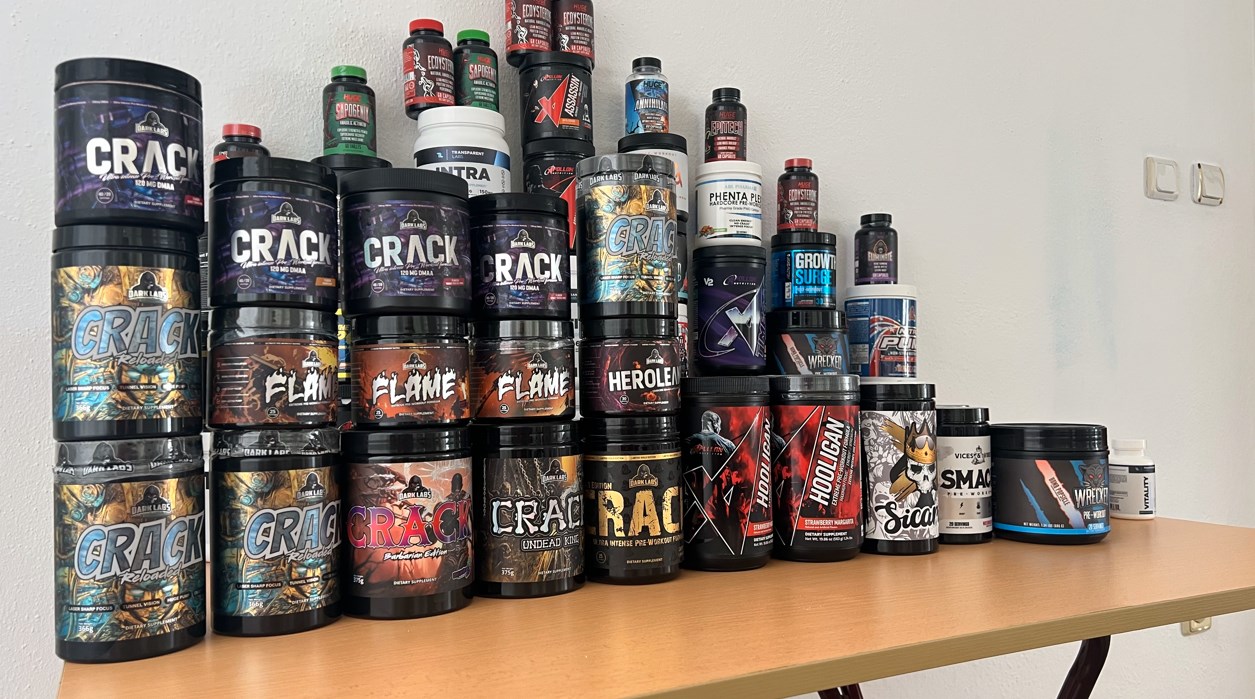
While it's not illegal to possess or buy them, they are illegal to be sold in the market as dietary supplements.
So if you're not selling these as dietary supplements, in the U.S., then you don't have to worry about anything.
Companies will always find ways to include these hardcore stimulants in their pre-workouts.
The legal status of DMAA and DMHA varies by country due to potential health risks associated with their use. Here's a brief overview:
DMAA:
DMHA:
It's important to note that even if DMAA and DMHA are legal in some countries, they may still be banned by sports organizations due to their performance-enhancing effects. Always check the specific regulations in your country and any sports organization you may be part of before using these substances.
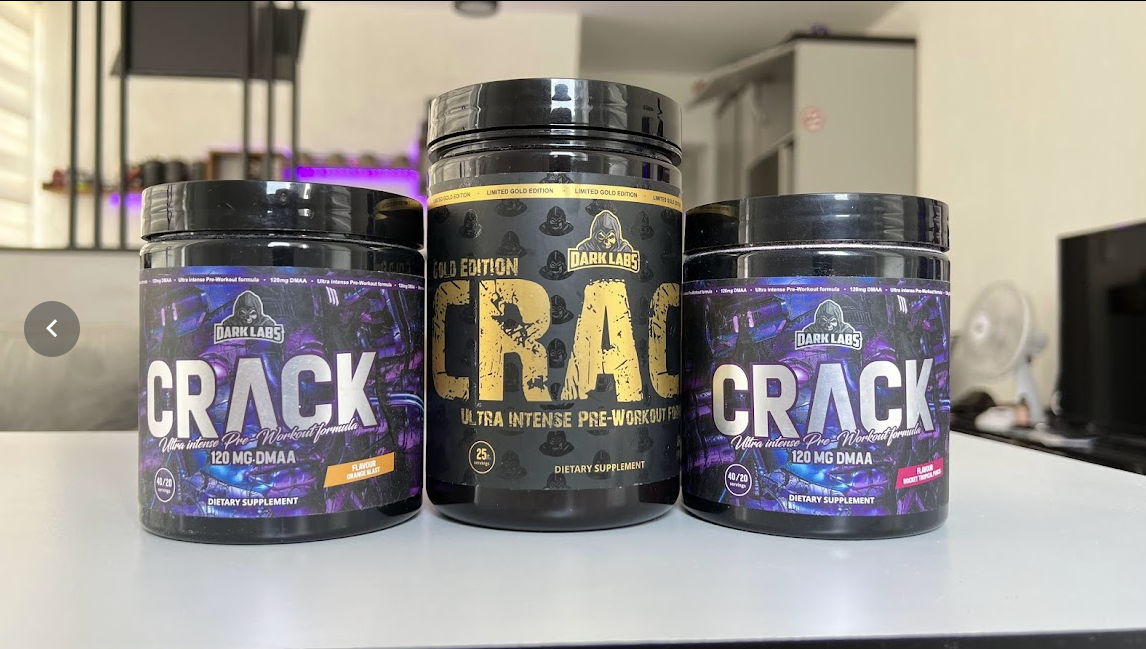
When it comes to DMAA and DMHA, there's no shortage of user experiences and testimonials out there.
(Check out our comprehensive guide on pre-workouts)
Many users of DMAA rave about its potent energy-boosting effects.
One user reported feeling "supercharged" during their workouts, able to push harder and longer than ever before.
Another user described feeling a heightened sense of focus and alertness, making their workouts more productive and enjoyable.
However, some users also reported experiencing side effects like jitters, increased heart rate, and difficulty sleeping.
On the other hand, DMHA users often describe the stimulant as being more "smooth" and "balanced."
One user reported feeling a steady stream of energy throughout their workout, without the intense rush or crash often associated with DMAA.
Another user praised DMHA for its mood-enhancing effects, saying it made their workouts feel more enjoyable and less of a chore.
However, like DMAA, some users also reported experiencing side effects, although they tended to be less severe.
Overall, it seems that while both DMAA and DMHA can boost energy and focus, they do so in slightly different ways.
DMAA appears to provide a more intense, immediate boost, while DMHA offers a more steady, sustained energy increase.
However, both substances can cause side effects, and their severity seems to vary from person to person.
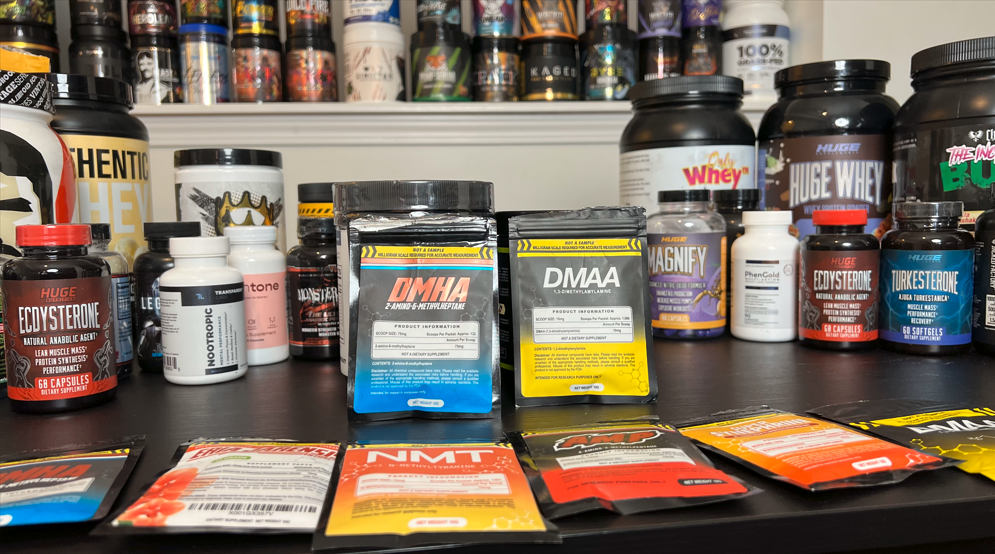
Fitness experts often have mixed views on DMAA and DMHA.
Some praise these substances for their potent energy-boosting effects, saying they can help athletes and bodybuilders push past their limits.
However, others caution against their use, citing potential health risks and the lack of long-term safety data.
Medical professionals tend to be more cautious when it comes to DMAA and DMHA.
Many warn against their use, especially for those with pre-existing health conditions like high blood pressure or heart disease.
They also emphasize the importance of consulting with a healthcare professional before starting any new supplement regimen.
While there's no clear consensus among experts, most agree that more research is needed to fully understand the effects and safety of DMAA and DMHA.
In the meantime, they advise users to proceed with caution and always prioritize their health and safety.
Common side effects of DMAA and DMHA include jitters, increased heart rate, and difficulty sleeping.
These side effects are often mild and temporary, but they can be uncomfortable and disruptive.
In rare cases, DMAA and DMHA can cause more serious side effects.
These can include high blood pressure, shortness of breath, and even heart attacks.
If you experience any of these side effects, it's important to seek medical attention immediately.
If you experience side effects from DMAA or DMHA, the first step is to stop using the substance.
Next, consult with a healthcare professional. They can provide advice and treatment options to help manage your symptoms.
Finally, consider switching to a safer alternative. There are many effective pre-workout supplements out there that don't carry the same risks as DMAA and DMHA.
There are many natural alternatives to DMAA and DMHA.
These include caffeine, green tea extract, and L-theanine. These substances can boost energy and focus without the risks associated with DMAA and DMHA.
Read here for the safest pre-workouts that are approved by the FDA.
There are also safer stimulants available on the market.
These include substances like caffeine and eria jarensis.
Caffeine can also come in different forms, from slow to fast digesting.
These can enhance your workout performance without the potential side effects of DMAA and DMHA.
When compared to DMAA and DMHA, these alternatives may not provide the same intense energy boost.
However, they're generally considered to be safer and more sustainable in the long run.
Plus, they can still significantly enhance your workout performance, helping you reach your fitness goals.
So, if you're looking for a pre-workout boost without the risks, these alternatives are definitely worth considering.
The quality of DMAA is a mixed bag with this source. Be aware that it won't be the same for every batch. Some users report it works, some say it's bunk. Turn any caffeinated pre-workout into an exotic one with bulk DMAA from BulkStimulants.
The only downside is that you need a milligram scale or you won't be able to accurately measure it but you'll have months worth of DMAA.
This is the same site that supplies the mood enhancing Eria Jarensis, and the aggressive stimulant Amp Citrate.
This pre-workout is being discontinued, get it while you can. Crack is one of the popular pre-workouts and is one of the few good DMAA pre-workouts. Crack packs 120mg DMAA along with nitrates and nitric oxide boosters.
You can have DMHA for ages with this option from BulkStimulants.
Add it to any boring pre workout and make it more hardcore with this stimulant.
Marketing in supplements can have you believing in their hype but can end up being a complete miss...
For example some pre workouts claim to have DMAA and DMHA but are not that great.
This could be due to the quality of the ingredients, or some combination of factors.
The FDA are generally not able to keep these stimulants off the market as companies find the gray area of adding them in the supplements.
Companies will change the names to help them keep off the crosshair of the FDA, and are generally only included in the most hardcore pre workouts.
Here are some common names for these stimulants:
DMAA:
DMHA:
As we mentioned earlier, it's still possible to find pre workouts without these stimulants and still be stronger.
These pre-workouts have hit our top list for strongest pre-workouts and they don't have either of these stimulants:
This is due to the fact that there are other stimulants that can be combined with caffeine to make it a much stronger pre-workout.
There are still lots of great options for DMHA and DMAA pre-workouts.
You don't need to have either of these stimulants to have a great pre-workout.
And disappointing pre-workouts with DMHA or DMAA also exist.
Stimulants are a way to increase energy but they aren't the end-all solution for a great workout.
Proper recovery, nutrition, and programming are even more important.
Check out these DMAA pre-workouts:
And these are the DMHA pre-workouts:
The quality of DMAA is a mixed bag with this source. Be aware that it won't be the same for every batch. Some users report it works, some say it's bunk. Turn any caffeinated pre-workout into an exotic one with bulk DMAA from BulkStimulants.
The only downside is that you need a milligram scale or you won't be able to accurately measure it but you'll have months worth of DMAA.
This is the same site that supplies the mood enhancing Eria Jarensis, and the aggressive stimulant Amp Citrate.
This pre-workout is being discontinued, get it while you can. Crack is one of the popular pre-workouts and is one of the few good DMAA pre-workouts. Crack packs 120mg DMAA along with nitrates and nitric oxide boosters.
You can have DMHA for ages with this option from BulkStimulants.
Add it to any boring pre workout and make it more hardcore with this stimulant.
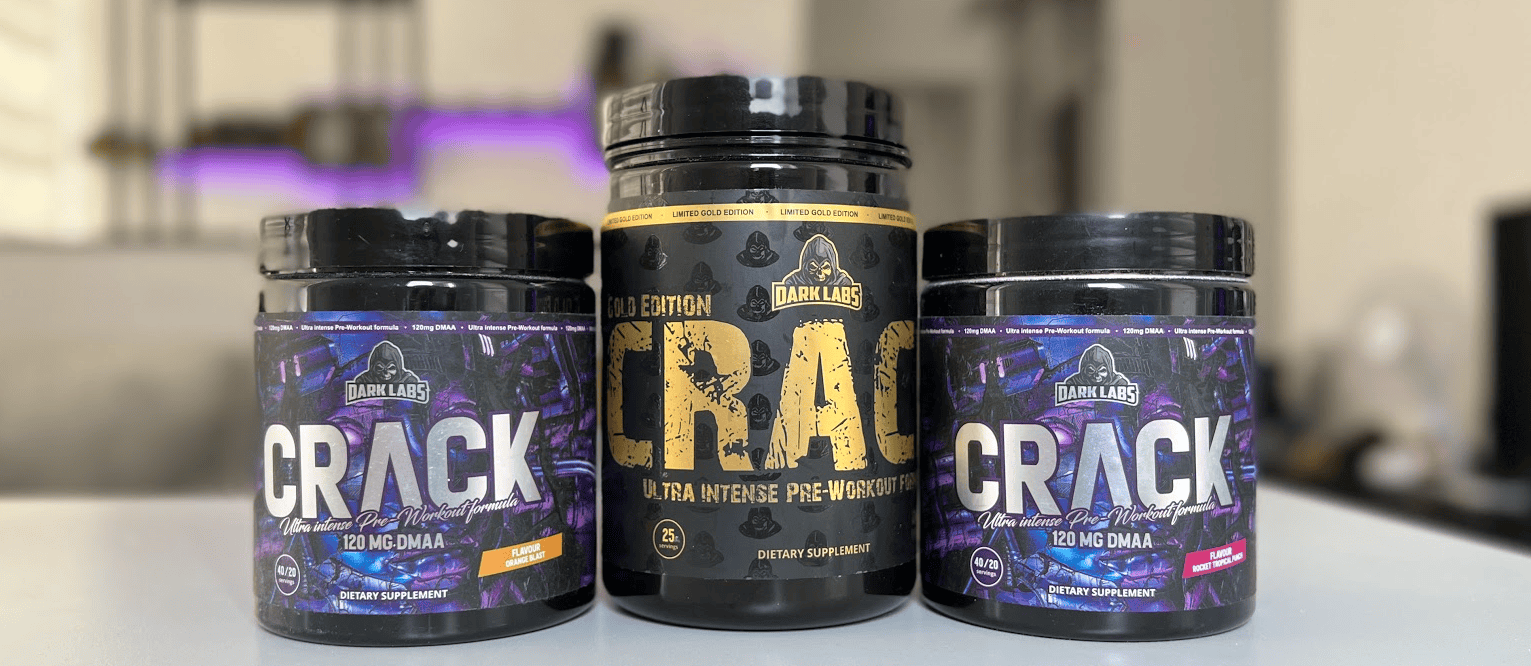
What are the common side effects of DMAA and DMHA?
Common side effects can include increased heart rate, high blood pressure, anxiety, and the potential risk of heart problems.
Can I use DMAA and DMHA together?
It's not recommended to use DMAA and DMHA together due to the increased risk of side effects.
Are DMAA and DMHA banned substances?
In some countries, DMAA and DMHA are banned due to their potential health risks. However, in other countries, they are legal and widely used in fitness supplements. Here are ingredients you should avoid in pre-workouts.
Can DMAA and DMHA help with weight loss?
Some studies suggest that DMAA and DMHA can aid in weight loss by boosting metabolism and energy levels. However, more research is needed to confirm these effects.
Are there any natural alternatives to DMAA and DMHA?
Yes, there are several natural alternatives that can boost energy and performance, such as caffeine, green tea extract, and Rhodiola Rosea.
Do you need DMHA or DMAA for strong energy?
No, not necessarily. Just because a pre-workout has these stimulants do not make them automatically great.
Apollon Nutrition and many companies have proven time and time again that pre workouts can be great without them.
Why are DMAA and DMHA banned from supplements?
Some evidence suggests that these stimulants can increase blood pressure, leading to higher-risk cardiovascular issues.
Although it's considered to be safe by people using appropriate dosages, it's possible for some companies to push the boundaries of dosages and add to the risk.
Are DMAA and DMHA steroids?
No these are stimulants, they are not anabolic steroids nor do they affect hormones.
Has WADA (World Anti-Doping Agency) banned DMHA and DMAA?
Yes they are not allowed for athletes to use according to the WADA rules.
How long do the effects of DMAA and DMHA last?
The effects of DMAA typically last for a few hours, while DMHA has a longer half-life and its effects can last longer.
Can I use DMAA or DMHA if I have a medical condition?
If you have a medical condition, especially a heart condition, it's crucial to consult with a healthcare professional before using DMAA or DMHA.
Are DMAA and DMHA addictive?
While DMAA and DMHA are not typically considered addictive, they can lead to dependence due to their energy-boosting effects.
Can I use DMAA or DMHA for studying or work?
While DMAA and DMHA can improve focus and concentration, they are potent stimulants and should be used responsibly. Overuse can lead to side effects like anxiety and high blood pressure.
What should I do if I experience side effects from DMAA or DMHA?
If you experience side effects from DMAA or DMHA, it's important to stop using the substance and seek medical attention immediately.
So, what's the difference between DMAA and DMHA?
In a nutshell, both DMAA and DMHA are powerful stimulants that can boost energy, focus, and physical performance.
However, DMHA has a longer carbon chain, which might explain its longer half-life and sustained effects.
Now, let's wrap things up.
We've journeyed through the world of DMAA and DMHA, delving into their origins, mechanisms, benefits, risks, and legal status.
We've seen that while they offer enticing benefits, they also come with potential risks.
And while they might be legal in some places, they're banned in others.
So, what's the takeaway?
Well, it's all about balance and making informed decisions.
Remember, no supplement is a magic bullet.
Real, lasting health and performance come from a balanced diet, regular exercise, and a healthy lifestyle.
And if you're considering using DMAA or DMHA, always consult with a healthcare professional first.
Stay safe, stay informed, and keep pushing your limits.
After all, the real power lies within you, not in a supplement.
And that's a wrap!
I hope you found this article helpful and informative.
If you have any other questions, feel free to ask.
Until next time, keep striving for your best!
Useful Links
 About FitFrek
About FitFrekFitFrek operates as an independent platform, offering comprehensive workouts, programs, routines, guides, and unbiased reviews to accelerate your progress. We pride ourselves on our honesty, delivering straightforward and candid insights. FitFrek does not offer medical advice, diagnosis, or treatment services.